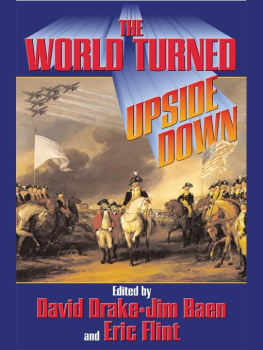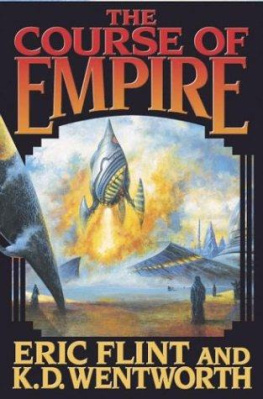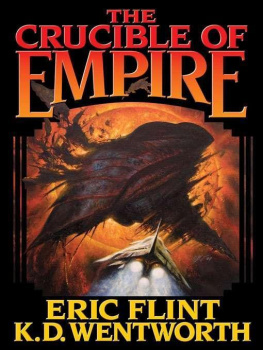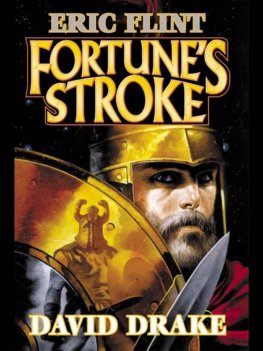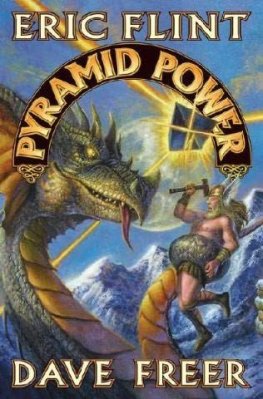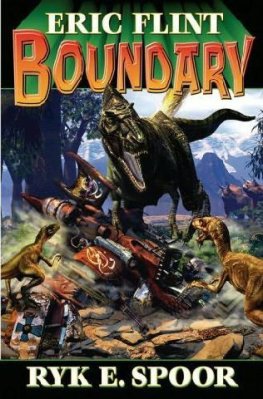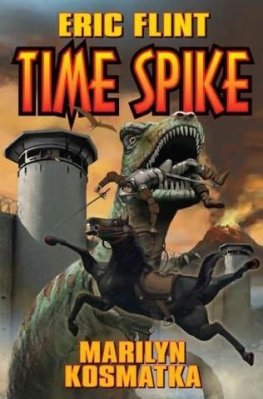Eric Flint - 1632
Here you can read online Eric Flint - 1632 full text of the book (entire story) in english for free. Download pdf and epub, get meaning, cover and reviews about this ebook. genre: Science fiction. Description of the work, (preface) as well as reviews are available. Best literature library LitArk.com created for fans of good reading and offers a wide selection of genres:
Romance novel
Science fiction
Adventure
Detective
Science
History
Home and family
Prose
Art
Politics
Computer
Non-fiction
Religion
Business
Children
Humor
Choose a favorite category and find really read worthwhile books. Enjoy immersion in the world of imagination, feel the emotions of the characters or learn something new for yourself, make an fascinating discovery.
- Book:1632
- Author:
- Genre:
- Rating:4 / 5
- Favourites:Add to favourites
- Your mark:
- 80
- 1
- 2
- 3
- 4
- 5
1632: summary, description and annotation
We offer to read an annotation, description, summary or preface (depends on what the author of the book "1632" wrote himself). If you haven't found the necessary information about the book — write in the comments, we will try to find it.
1632 — read online for free the complete book (whole text) full work
Below is the text of the book, divided by pages. System saving the place of the last page read, allows you to conveniently read the book "1632" online for free, without having to search again every time where you left off. Put a bookmark, and you can go to the page where you finished reading at any time.
Font size:
Interval:
Bookmark:
Eric Flint
1632
This is a work of fiction. All the characters and events portrayed in this book are fictional, and any resemblance to real people or incidents is purely coincidental. Copyright 2000by Eric Flint All rights reserved, including the right to reproduce this book or portions thereof in any form. A Baen Books Original Baen Publishing Enterprises P.O. Box 1403 Riverdale, NY 10471
ISBN: 0-671-31972-8
Cover art byLarry Elmore Interior maps by Randy Asplund First paperback printing, February 2001 Library of Congress Cataloging-in-Publication Data Flint, Eric.
1632 / by Eric Flint. p. cm. ISBN 0-671-57849-9 (hc) 1. Thirty Years' War, 1618-1648-Fiction. 2. City and town life-West Virginia-Fiction. 3. Germany-History-1618-1648-Fiction. 4. Americans-Travel-Germany-Fiction. 5. West Virginia-Fiction. 6. Time travel-Fiction. I. Title.
PS3556.L548 A616 2000
813'.54-dc21 99-055275 Distributed by Simon Schuster 1230 Avenue of the Americas New York, NY 10020 Typeset by Windhaven Press, Auburn, NH Printed in the United States of America
To my mother,
Mary Jeanne McCormick Flint,
and to the West Virginia
from which she came.
Baen Books by Eric Flint
Mother of Demons
The Belisarius series, with David Drake:
An Oblique Approach
In the Heart of Darkness
Destiny's Shield
Prologue


The mystery would never be solved. It would simply join others, like the Tunguska event or the Square Crater on Callisto, in the catalogue of unexplained occurrences. The initial worldwide excitement waned within a few months, as it became clear that no quick answers would be found. For a few years grieving relatives would, with some success, press officialdom to maintain the studies and inquiries. But there were no lawyers to keep the fires stoked. The courts ruled soon enough that the Grantville Disaster was an Act of God, for which insurance companies were not liable. Within ten years, the Disaster had devolved into another domain of fanatics and enthusiasts, like the Kennedy Assassination. Thereafter, of course, it enjoyed a near-eternal half-life. But few if any reputable scientists in the world held out any hope for a final explanation.
Theories, of course, abounded. But the vague traces on instruments were impossible to decipher clearly. A small black hole, passing through the Earth. That was one theory. Another-popular for a time until the underlying mathematics were rejected in the light of later discoveries-was that a fragmented superstring had struck the planet a glancing blow.
The only man who ever came close to understanding that a new universe had been created was a biologist. A junior biologist by the name of Hank Tapper, attached almost as an afterthought to one of the geological teams sent to study the disaster. The team devoted several months to a study of the terrain which had replaced what had once been part of West Virginia. They came to no conclusions other than the obvious fact that the terrain was not indigenous to the area, but that-this eliminated the once-avid interest of the SETI crowd-it was clearly terrestrial.
The size of the foreign terrain was mapped, quite precisely. It formed a perfectly circular hemisphere about six miles in diameter, approximately half that deep at its center. Once the team left, Tapper remained behind for a few more months. Eventually, he identified the fauna and flora as being almost identical to those of parts of Central Europe. He became excited. That matched the archaeological report, which-very, very diffidently-suggested that the ruined farmhouses on the new terrain had a vaguely late-medieval/early modern Germanic feel to them. So did the seven human corpses found in one of the farmhouses. Two men, two women, and three children. The remains were badly charred by the fire, but marks on the bones indicated that at least two of the people had been murdered by some kind of large cutting implements.
The dental evidence suggested that the dead people were not modern. Or, at least, had somehow never been given any kind of dental treatment. But medical examination determined that the murders were very recent. And the farmhouses were still smoldering when they were found.
Tapper teetered on the edge of the truth. Then, after several more months of work failed to turn up any matching piece of disturbed terrain anywhere in central Europe, he abandoned the study altogether. He had suspicions, but-
The only possible explanation was a transposition in time as well as space. Tapper was a junior biologist. His budding career would be ruined if he advanced his suspicions without evidence. And there could be no evidence, if he was right. Whatever remained of the area of West Virginia which had vanished was lost somewhere back in time.
So, Tapper accepted the loss of a year's work, and went in search of greener pastures. He published his findings, to be sure; but only as dry factual accounts in obscure publications. He made no attempt to draw conclusions, or posit theories, or draw any kind of public attention.
It was just as well. His career would have been ruined-and for no good purpose. No one would have believed him. Even if someone had, the most extensive archaeological search of central Europe would never have discovered the matching hemisphere. It was there, of course, in that region of Germany called Thuringia. But it was there almost four centuries earlier, and only for an instant. The moment those hemispheres had been transposed, a new universe split off from the old.
And, besides, the truth was far stranger than even Tapper ever imagined. Even he assumed that the cause was some kind of natural cosmic disaster.
***In reality, the Grantville Disaster was the result of what humans of the day would have called criminal negligence. Caused by a shard of cosmic garbage, a discarded fragment of what, for lack of a better term, could be called a work of art. A shaving, you might say, from a sculpture. The Assiti fancied their solipsist amusements with the fabric of spacetime. They were quite oblivious to the impact of their "art" on the rest of the universe.
The Assiti would be exterminated, eighty-five million years later, by the Fta Tei. Ironically, the Fta Tei were a collateral branch of one of the human race's multitude of descendant species. Their motive, however, was not revenge. The Fta Tei knew nothing of their origins on a distant planet once called Earth, much less a minor disaster which had occurred there. The Fta Tei exterminated the Assiti simply because, after many stern warnings, they persisted in practicing their dangerous and irresponsible art.
Part One
Tiger! Tiger! burning bright
In the forests of the night
Chapter 1
"I'm sorry about my parents, Mike." Tom gave the two people in question a look of resentment. "I'd hoped-" He broke off, sighing faintly. "I'm sorry, I really am. You spent a lot of money on all this."
Mike Stearns followed his gaze. Tom Simpson's mother and father were standing near the far wall of the cafeteria, some fifty feet away. Their postures were stiff; their faces, sour. Their very expensive clothing was worn like suits of armor. They were holding the cups of punch in their hands by thumb and forefinger, as if determined to make as little contact with the surrounding festivities as possible.
Font size:
Interval:
Bookmark:
Similar books «1632»
Look at similar books to 1632. We have selected literature similar in name and meaning in the hope of providing readers with more options to find new, interesting, not yet read works.
Discussion, reviews of the book 1632 and just readers' own opinions. Leave your comments, write what you think about the work, its meaning or the main characters. Specify what exactly you liked and what you didn't like, and why you think so.


